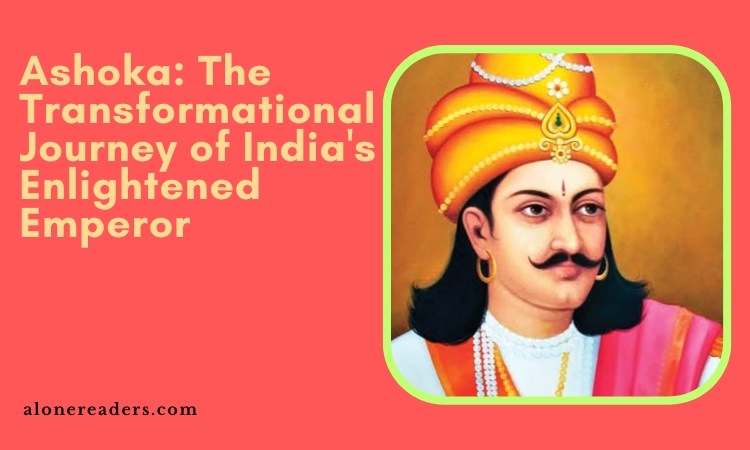
Ashoka, a name that resonates through the annals of Indian history, is synonymous with enlightened governance and a transformative approach to leadership. His reign as the emperor of the Mauryan dynasty marks a significant epoch in the historical and cultural fabric of India. This article delves into the life of Ashoka, his conversion to Buddhism, and how his rule left an indelible imprint on India and beyond.
Ashoka was born in 304 BCE to Emperor Bindusara, the second ruler of the Mauryan dynasty. His early life, marked by royal privilege, was also a time of rigorous training in the art of governance and warfare. Despite the opulence of his surroundings, the young prince was exposed to the realities of power struggles within the royal court.
The path to Ashoka’s ascension was neither straightforward nor peaceful. After the death of his father, Ashoka, amidst a backdrop of political intrigue and familial conflict, eventually took the throne in 272 BCE. His early reign was characterized by a typical imperialistic approach, focusing on expansion and consolidation of the empire.
The pivotal moment in Ashoka’s life came in the form of the bloody Battle of Kalinga in 261 BCE. This conquest, although successful, resulted in immense loss of life and suffering. The horrors of this battle profoundly affected Ashoka, leading him to reconsider the path of violence and conquest he had been following.
In the aftermath of Kalinga, Ashoka underwent a dramatic transformation. He embraced Buddhism, drawn to its teachings of peace, compassion, and non-violence. This marked the beginning of a new era in his rule – one that focused on the welfare of his people and the propagation of Buddhist principles.
Ashoka’s adoption of Buddhism was not just personal but also political. He formulated a policy known as “Dhamma,” which was not specifically Buddhist but embraced the universal values of all religions. This policy emphasized moral and ethical living, compassion for all beings, tolerance, and non-violence. It was a radical shift from the prevailing notions of kingship and empire-building.
One of the most significant contributions of Ashoka’s reign was the series of edicts he had inscribed on pillars and rocks across his empire. These edicts, written in Prakrit language and Brahmi script, detail his policies and exhortations towards righteous living. They serve as enduring testaments to his commitment to Dhamma and provide valuable insights into his thoughts and governance.
Ashoka’s reign also witnessed an extensive diplomatic outreach. He sent envoys to various parts of the world, including West Asia and the Mediterranean, spreading the message of Buddhism. This led to Buddhism becoming a world religion, extending far beyond the Indian subcontinent.
Ashoka’s governance model was advanced for its time. He established a well-organized bureaucracy with a focus on welfare initiatives like hospitals, veterinary services, and public works. His emphasis on moral values in administration set a new precedent in governance.
The impact of Ashoka’s reign extended far beyond his lifetime. He is remembered as a ruler who, despite the absolute power at his disposal, chose the path of peace and benevolence. His model of leadership inspired future generations and left a lasting imprint on the ethos of the Indian subcontinent.
Ashoka's journey from a power-driven emperor to a compassionate, enlightened ruler is a powerful narrative of transformation. His embrace of Buddhism and the propagation of Dhamma laid the foundations for a more humane and ethical approach to kingship. Ashoka's legacy continues to inspire and resonate, reminding us of the profound impact enlightened leadership can have on society and history.